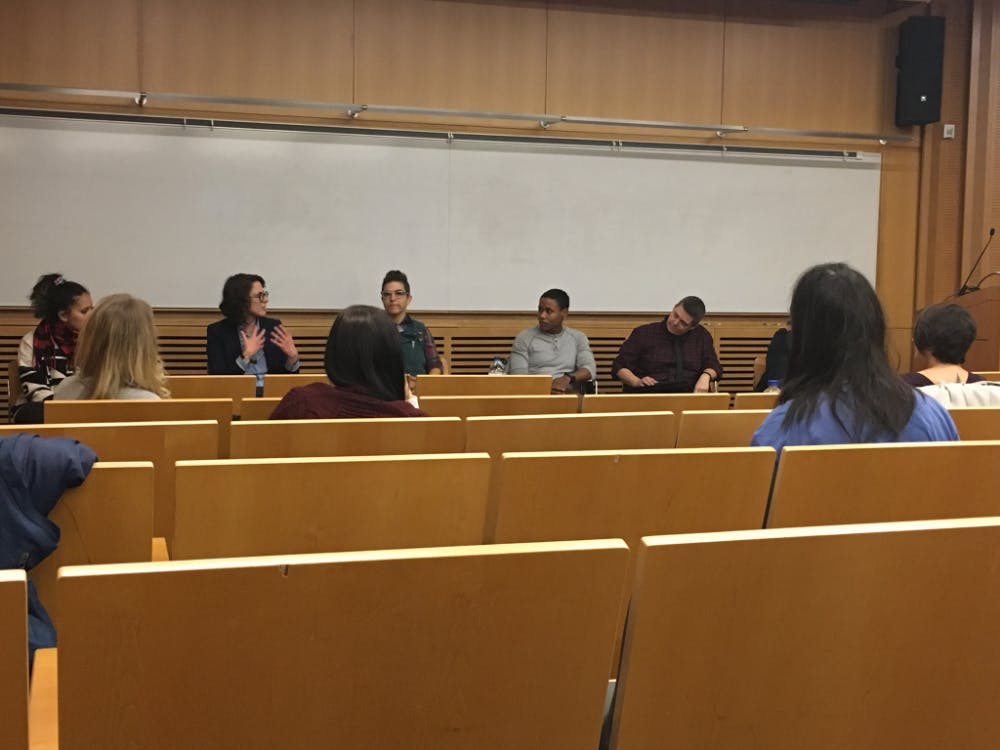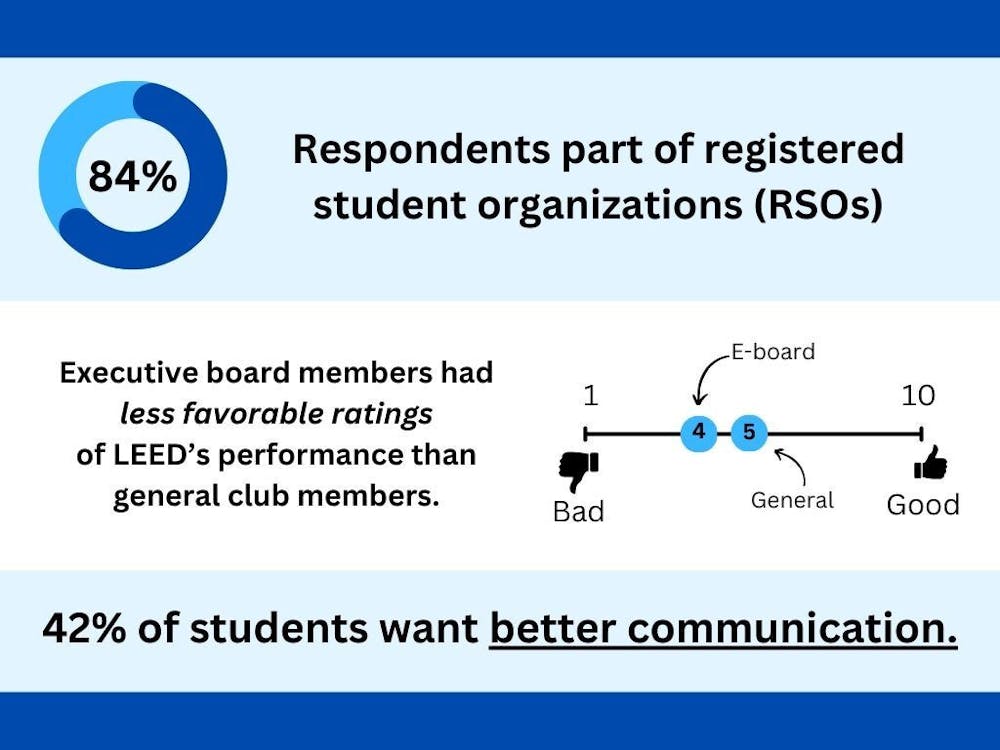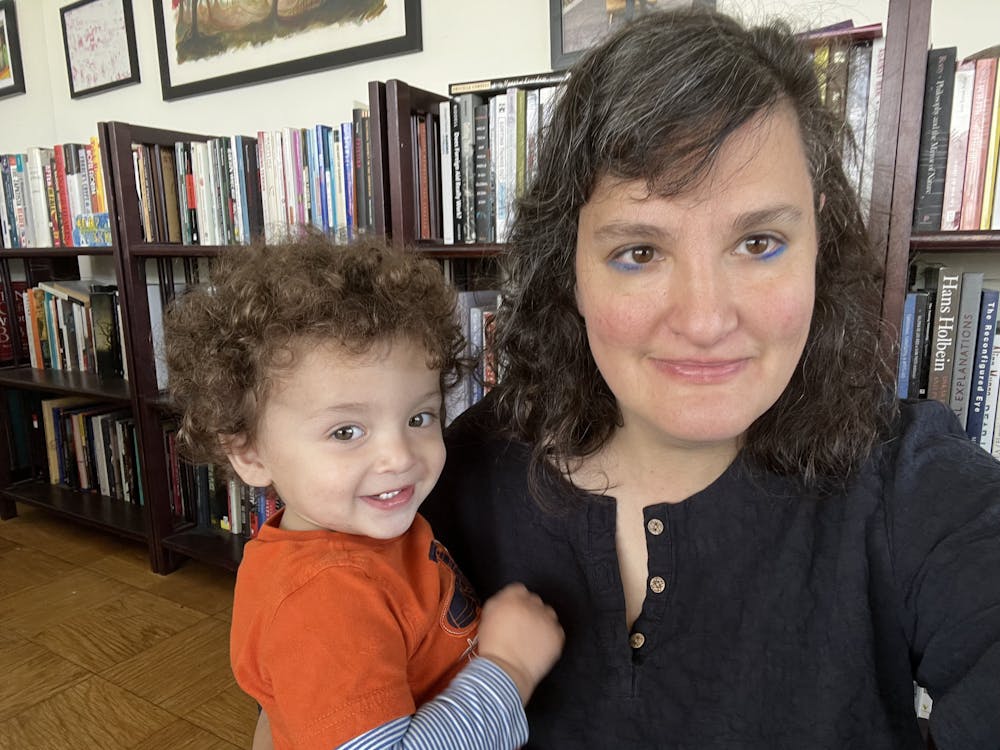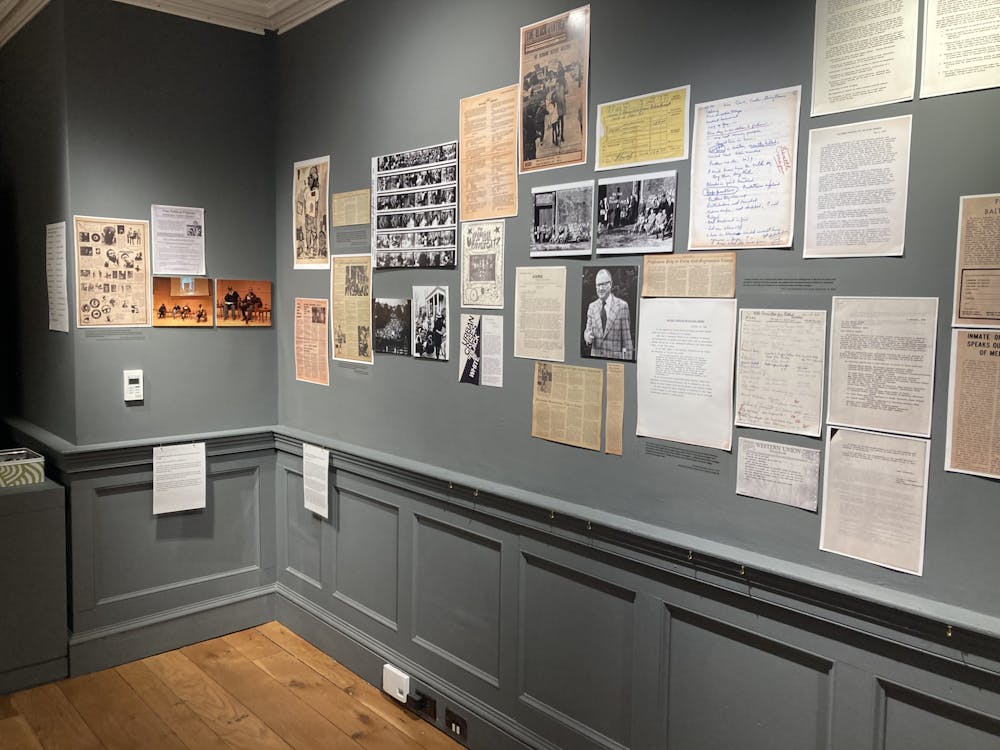The Office of LGBTQ Life and the Office of Gender Equity (OGE) hosted a panel discussion in Gilman on the performance of masculine and feminine identities, experiences within queer and non-queer spaces and gender stereotypes. The discussion, which took place on March 6, was the sixth event in a series planned by the OGE for Women’s History Month.
Panelists included sophomore Sandhya Ramachandran; Erin Gleeson, the project and events specialist in the Office of Institutional Equity; Abby Neyenhouse, assistant director for the Center for Social Concern; Sabrina Scarborough, a campus operations manager at the Hopkins School of Education; and Baltimore residents Nadia Humphries and Elliot Mittens Cooperson.
A major theme of the discussion was how some women display privileged masculine identities to assert themselves in positions of authority. Gleeson said that doing so can be advantageous at work.
“I’ve been in work situations with a bunch of dudes, and I’ve definitely tapped into my more toxic masculine persona,” Gleeson said. “And by adopting that persona, it’s like, ‘Oh, okay, they respect me now.’ Whereas if I was more collaborative, maybe, or dressed differently, I know that I wouldn’t get that sort of respect from men. I kind of used that in those situations to my advantage.”
Neyenhouse, the panel moderator, agreed with Gleeson about how identity can be adapted for different environments.
“I think that clinically, women are taught to not take up space. For me, I want to take up space all the time,” she said. “But I think I get more careful of that when I’m at work because I have an almost all-female staff, and so [I think about] where am I taking up too much space, or where am I silencing my coworkers, or where I am bringing stereotypical male ways of behaving.”
She emphasized that how she feels about her identity and how she is asserting it differ based on where she is, whether that space be more conservative or more liberal.
“If I’m out in Western Maryland, I’m suddenly fearful of the space that I take up. Especially now in this current election, it’s like I’m much more fearful of my identity in certain spaces than I was under Obama,” she said. “It’s like, can I go to this bathroom, will I make it back out safely?”
Ramachandran, who identifies as agender, has also experienced masculine privilege within a family setting due to cultural expectations and stereotypes.
“Something that I’ve noticed is that because I’m in engineering — which is masculine, right — they take me a lot more seriously than for example, my mom, who didn’t do a math-y degree,” Ramachandran said. “And I guess within Indian culture there’s a little bit of a joke about the divide, that women become engineers and men become doctors. So they one hundred percent take my opinions on everything more seriously because I’m an engineer.”
The panelists were asked how they use masculine energy to amplify the female voices around them.
Scarborough, who has managed Safe Zone training and held transgender awareness training at the University, said that the patriarchy has taught her to be more self-aware.
“I have to check myself. I recognize the patriarchy and misogyny,” Scarborough said. “So if I go to open a door for someone, am I opening the door because this is a girl and I’m trying to be the man? But no, I don’t, I open the door because I’m a nice person and I hold the door open for the person behind me and it doesn’t matter if it’s a woman or a man.”
Sophomore Osiris Mancera, the undergraduate intern for the Office of LGBTQ Life, explained why the panel discussion format differs from previous events put on by the OGE and LGBTQ Life.
“The reason for structuring it as a panel discussion was that... we’ve had discussions before, but it had mostly been one person talking at people,” Mancera said. “So it was just like ‘Oh, I wonder what it would be like to have multiple people give perspectives, different areas of expertise, talking about a particular topic.’”
Even though turnout for the event was fairly low, with an audience of six people, Mancera thinks that it was an effective way to spark more conversation about how women can perform more masculine identities.
Director of Gender Equity Jeannine Heynes believes that the discussion was special in that it provided a safe, welcoming environment for people to talk about non-traditional gender identities.
“It can be rare to find spaces in which people have the opportunity to talk about performing masculinity as androgynous, a non-binary individual, or as a woman,” Heynes wrote. “Hosting this event allowed anyone who attended to listen and learn from the panelists just how diverse, unique and empowering gender identity can be.”
















Please note All comments are eligible for publication in The News-Letter.